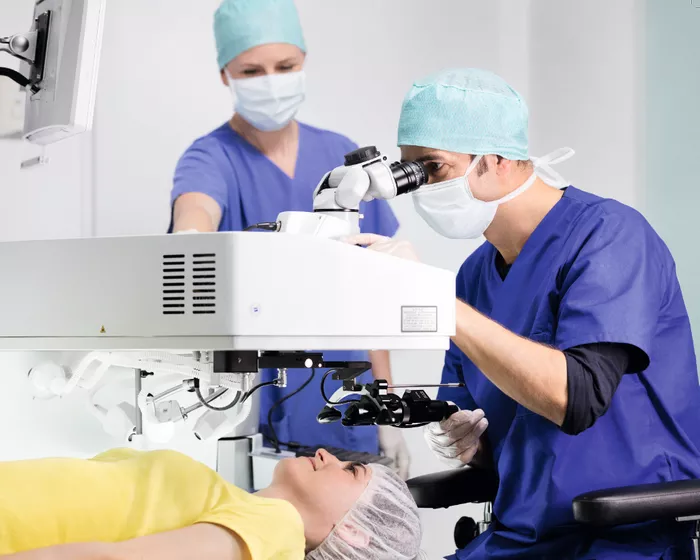Laser eye surgery, also known as refractive surgery, is a popular procedure to correct vision problems such as myopia, hyperopia, and astigmatism. Procedures like LASIK (Laser-Assisted In Situ Keratomileusis) and PRK (Photorefractive Keratectomy) offer quick recovery times and significant improvements in vision. However, the success of these surgeries depends significantly on post-operative care. Here are nine crucial things to note during laser eye surgery recovery.
1. Follow Your Surgeon’s Instructions
Importance of Adhering to Guidelines
Your surgeon will provide specific instructions tailored to your procedure. These guidelines may include medication schedules, activity restrictions, and follow-up appointments. Adhering to these instructions is critical for optimal healing and avoiding complications.
Medication Compliance
Take prescribed medications, such as antibiotic and anti-inflammatory eye drops, exactly as directed. These medications help prevent infection and reduce inflammation.
Attend Follow-up Appointments
Regular check-ups allow your surgeon to monitor your healing progress and address any concerns promptly. Missing appointments can delay detection and treatment of potential issues.
See Also: 8 Problems Laser Eye Surgery Can Solve
2. Protect Your Eyes
Use Protective Eyewear
Wear the protective eyewear provided by your surgeon, especially while sleeping, to prevent accidental rubbing or injury. During the day, sunglasses with UV protection are essential to shield your eyes from harmful rays and bright light.
Avoid Rubbing Your Eyes
Rubbing your eyes can displace the corneal flap created during LASIK or disrupt the healing surface in PRK. If your eyes feel itchy or dry, use lubricating eye drops as recommended by your surgeon.
3. Manage Discomfort and Dryness
Expected Symptoms
Mild discomfort, dryness, and light sensitivity are common after laser eye surgery. These symptoms typically resolve within a few days to weeks.
Using Artificial Tears
Lubricating eye drops or artificial tears can alleviate dryness and discomfort. Use them frequently, especially in dry environments or after activities that strain your eyes.
Pain Management
Over-the-counter pain relievers, such as acetaminophen, can help manage any mild pain. Consult your surgeon before taking any medication to ensure it does not interfere with your recovery.
4. Limit Screen Time
Digital Eye Strain
Prolonged use of digital devices can exacerbate dryness and strain during the initial recovery period. Limit screen time to allow your eyes to rest.
Taking Breaks
Follow the 20-20-20 rule: every 20 minutes, take a 20-second break and look at something 20 feet away. This practice helps reduce eye strain and promotes healing.
5. Avoid Water Exposure
No Swimming or Hot Tubs
For at least two weeks post-surgery, avoid swimming pools, hot tubs, and natural bodies of water to prevent infection. Water can introduce bacteria and other pathogens to your healing eyes.
Careful with Showers
While showering, keep your eyes closed to prevent soap, shampoo, and water from coming into contact with your eyes. Use a clean washcloth to gently wipe your face without touching your eyes.
6. Resume Activities Gradually
Physical Activities
Avoid strenuous activities and heavy lifting for at least a week. These actions can increase eye pressure and disrupt healing. Gradually resume exercise based on your surgeon’s advice.
Driving
Do not drive until you have been cleared by your surgeon. Your vision may be blurry or fluctuate in the initial days, affecting your ability to drive safely.
7. Monitor Your Vision Changes
Fluctuations in Vision
It is normal for vision to fluctuate during the first few weeks of recovery. You may experience periods of clear vision followed by blurriness. This should stabilize as your eyes heal.
Report Unusual Symptoms
Contact your surgeon if you experience severe pain, sudden vision loss, persistent redness, or other concerning symptoms. Early intervention can prevent complications.
8. Maintain Good Hygiene
Hand Hygiene
Always wash your hands thoroughly before applying eye drops or touching the area around your eyes. This practice minimizes the risk of infection.
Clean Eyewear and Accessories
Regularly clean your protective eyewear and any other accessories that come into contact with your face. Keeping these items clean helps prevent bacterial contamination.
9. Be Patient with the Healing Process
Realistic Expectations
Understand that full recovery can take several weeks to months. Vision improvements are often gradual, and patience is key to a successful outcome.
Psychological Adjustment
Adjusting to your new vision may take time. It is normal to feel anxious or concerned during the recovery period. Stay in contact with your surgeon and express any worries you may have.
Conclusion
Recovery from laser eye surgery involves careful attention to post-operative care instructions and lifestyle adjustments. By following these nine key points, you can promote a smooth healing process and achieve the best possible outcome for your vision. Always consult with your ophthalmologist for personalized advice and support throughout your recovery journey.
Related topics:

